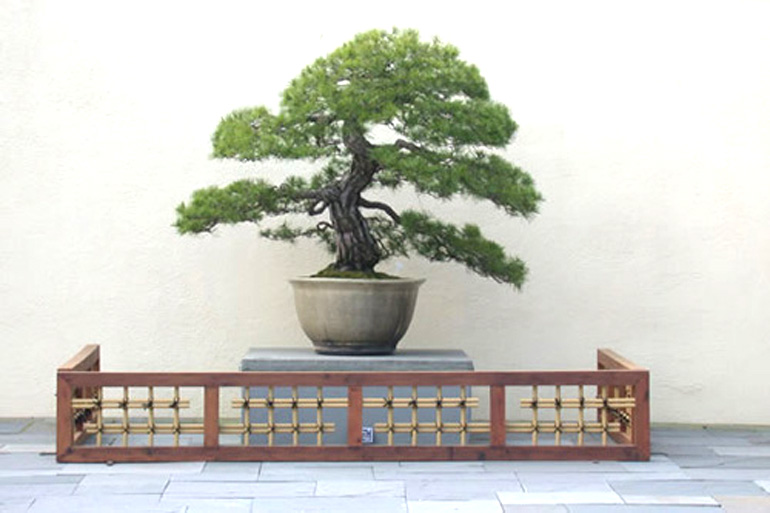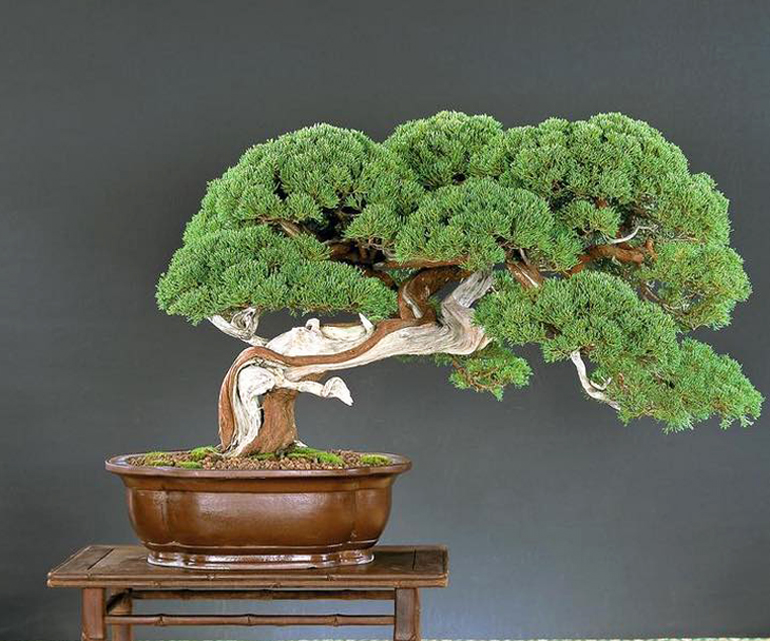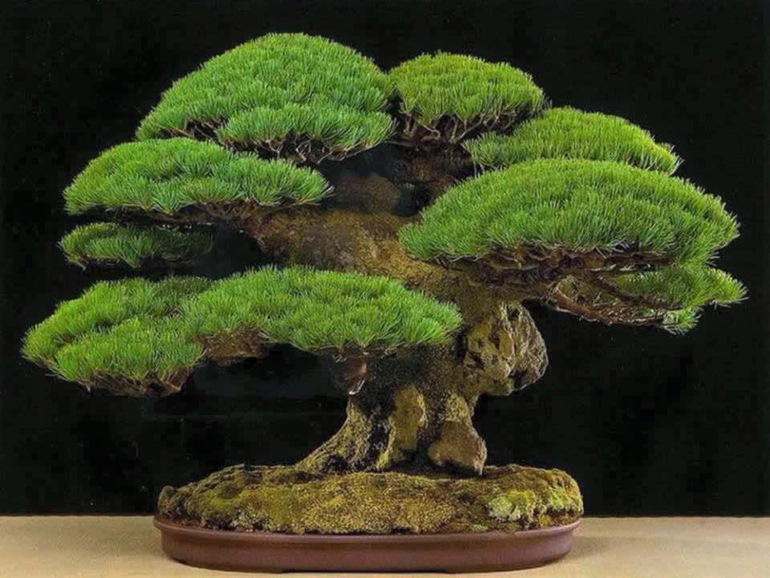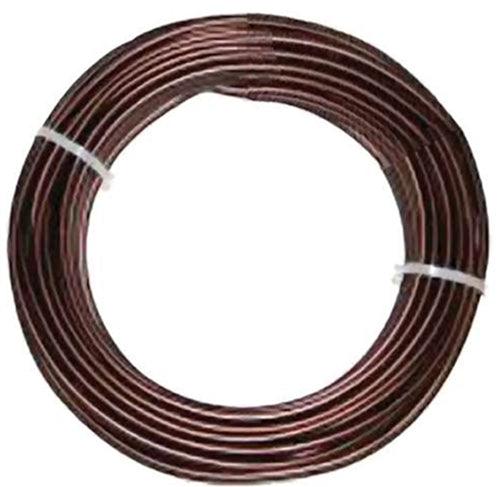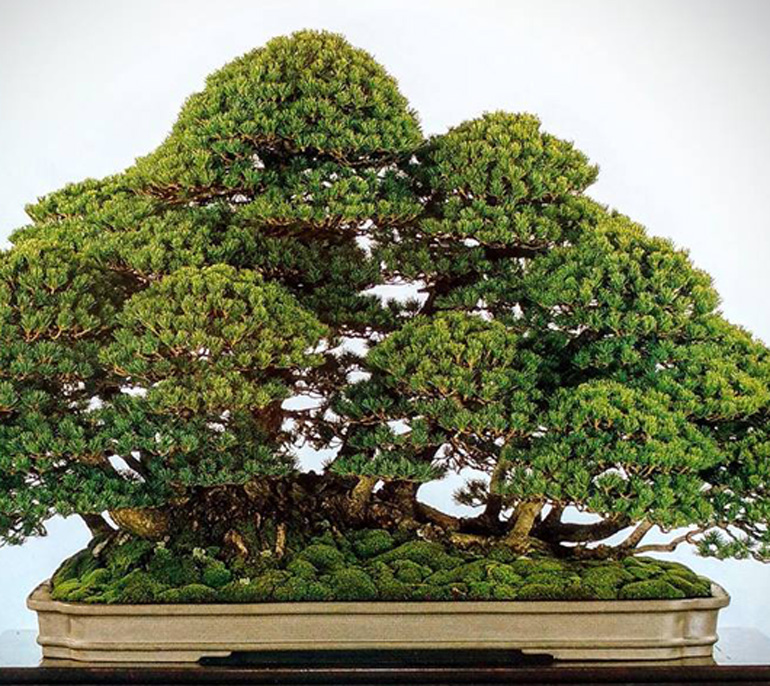 Close up of multiple trunk Japanese white pine. It looks a lot like a raft style* planting. This and the other photos shown here were taken at the Kokufu Bonsai Exhibition. I cropped the original shot (just below) for a closer look
Close up of multiple trunk Japanese white pine. It looks a lot like a raft style* planting. This and the other photos shown here were taken at the Kokufu Bonsai Exhibition. I cropped the original shot (just below) for a closer look
We’ve got some Japanese white pines (Pinus parviflora) from the Kokufu Exhibition that we found at Kazumatsu Bonsai. They don’t say what year the shots are from, but given that they were just posted, you might guess 2018
Just in case you’re new to bonsai, Kokufu is the oldest and most famous Bonsai Exhibition in the world. It takes place every year in Japan (with a break in the 1940s) and the 2018 Exhibition was the 92nd.
–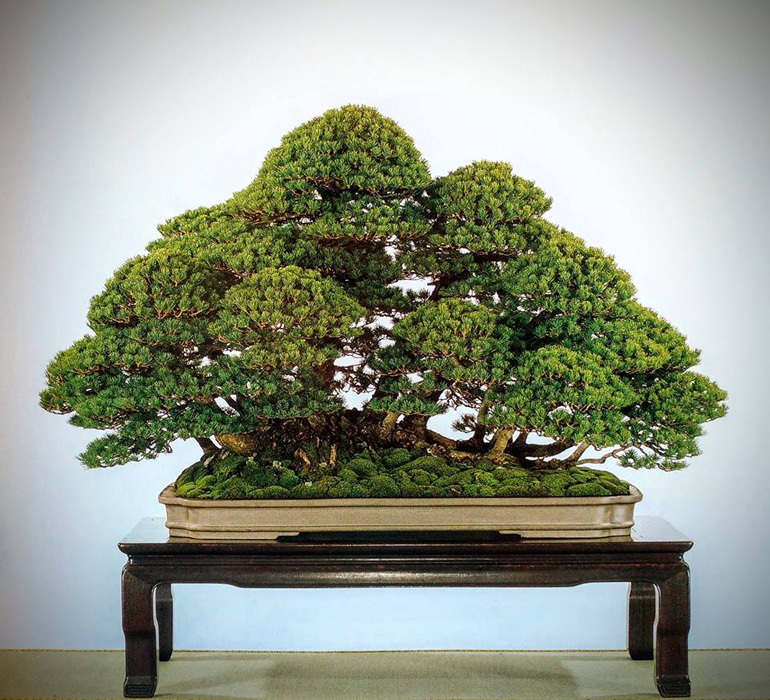
The original shot. As you can see, it's an exceptional planting with a healthy canopy and just enough holes for the birds to fly through. And the pot suits it to a tee
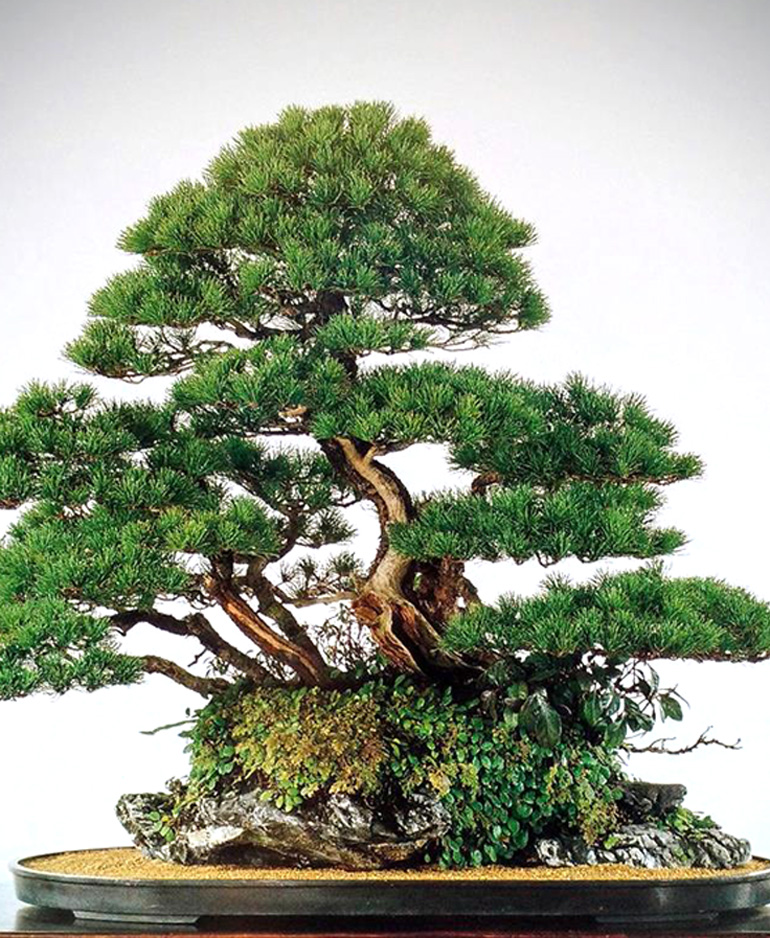
Another multi-trunked Japanese white pine, though this one is planted on a rock alive with ground cover. I can't tell for sure if it's a raft*
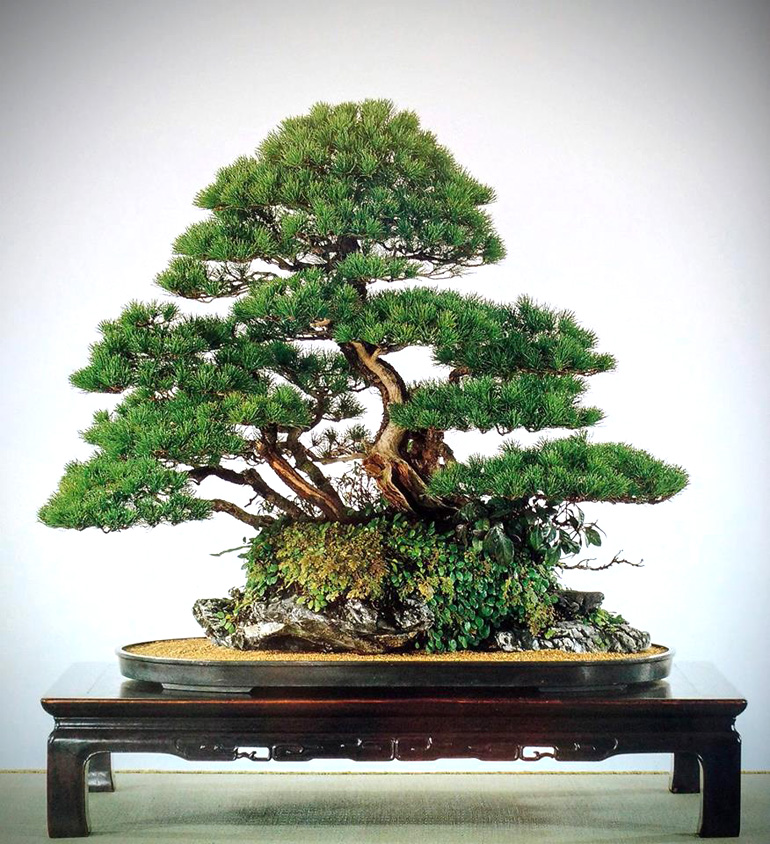
The original photo
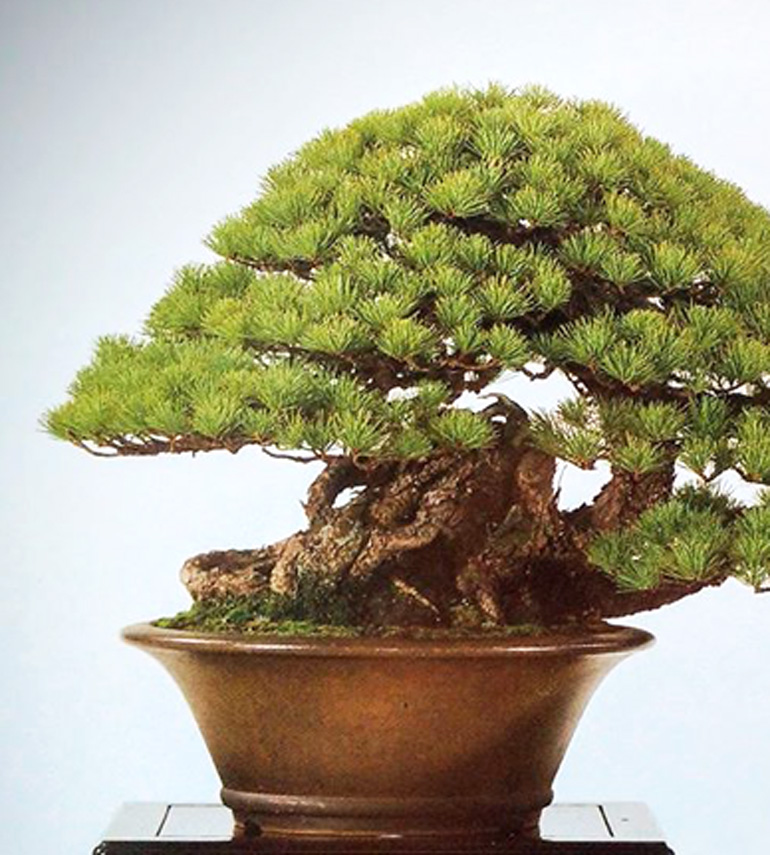
Another close up. This time of a white pine with an unusual base. Looks bit like sea creature, maybe an octopus
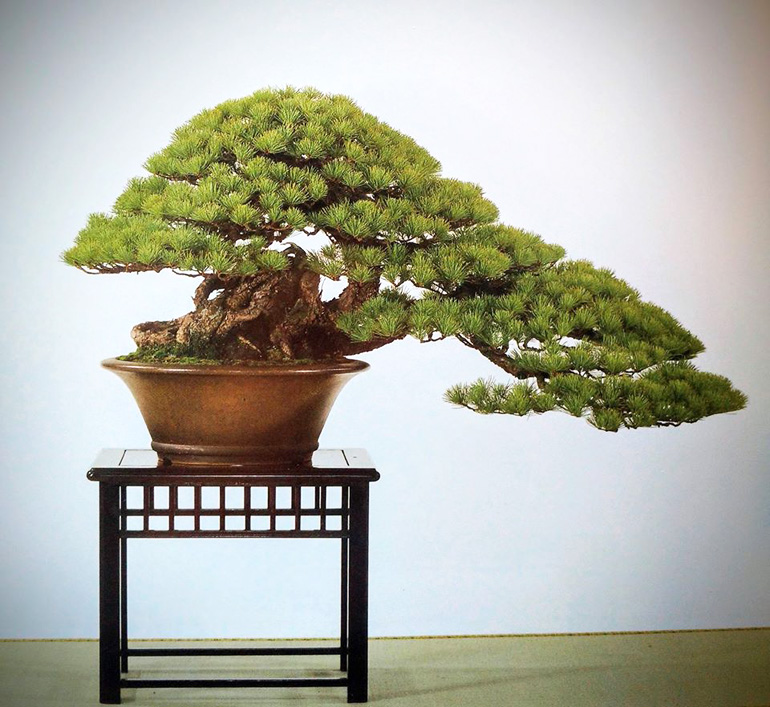
Here's the original photo. It makes more sense than the closeup above. The 'octapus' is less dominating and the whole effect becomes more dynamic once you see the dramatic sweep to the right
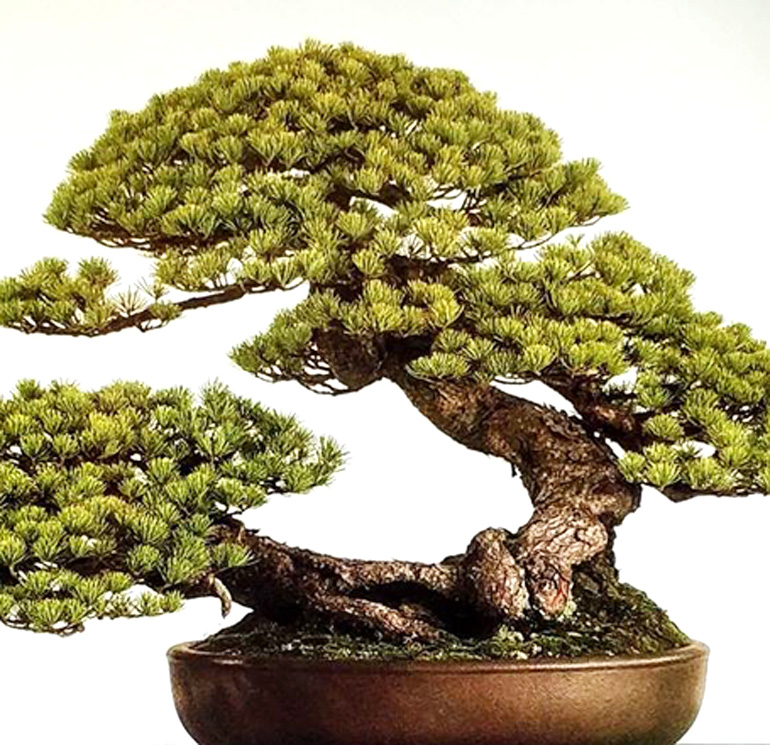
Another close up. This one looks a single twin tree tree with one root system, rather than two separate trunks.
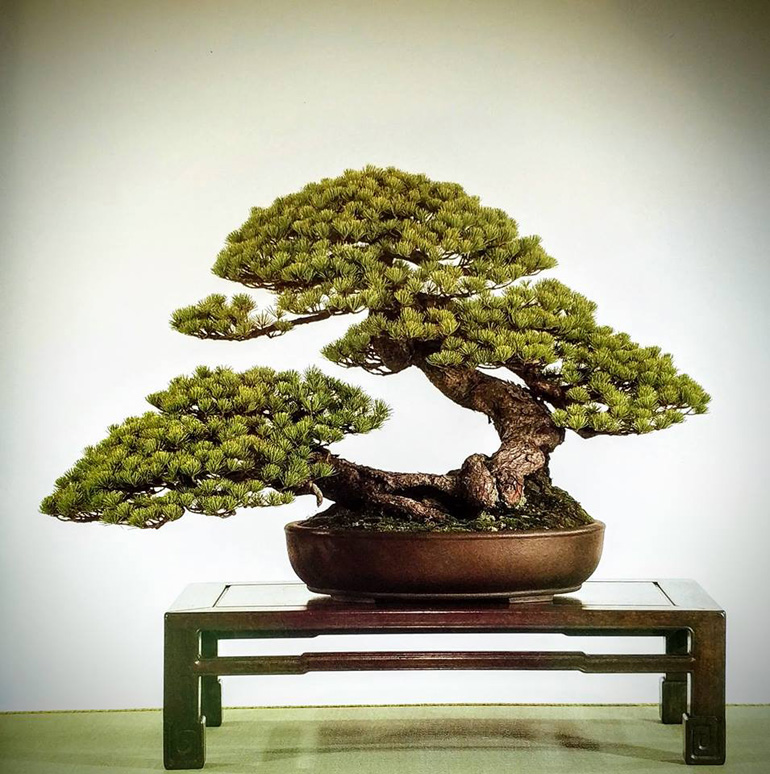
Perfect!
*A raft is characterized by a single fallen trunk that puts out new roots along the ground and has three or more trunks rising from it. Once you see and understand the concept in bonsai, you might start to notice them in nature (unless you live in NYC and never get out… sorry, just amusing myself… if you’ve read this far, let me know and we’ll send you 5.00 Stone Lantern coupon)… looks like I made a mistake in assuming sinuous root is a category of raft style, below is a clarification by Bill Valavanis
Your main bonsai featured is a Zuisho Japanese Five-needle Pine trained in the sinuous style, NOT raft style.
The raft, or straight line style, is characterized with a straight horizontal trunk on the soil surface with branches trained upward as individual trunks. Since the horizontal trunk is straight, very little perspective and movement is created as they are all in the same plane. This style is rather rare in Japan. What is popular is the sinuous style.
Sinuous Style
The sinuous style, or root connected style, is characterized with horizontal trunk, which is NOT straight but curved with movement, AND sometimes branches, along the soil surface with trunks are also trained upward. The original trunk which is curved, and also the horizontal branches provide an excellent opportunity to create depth and perspective. Most of the bonsai trained in the forest style with connected roots are actually sinuous, not raft. But, unfortunately, westerners prefer to use the incorrect word for this excellent style.
The 1992/NO. 1 issue of International BONSAI is on sinuous and raft style.
I rarely use Japanese terminology but here are the terms in case someone want to research more.
Raft style: Ikadabuchi
Sinuous style: Netsunagari
–

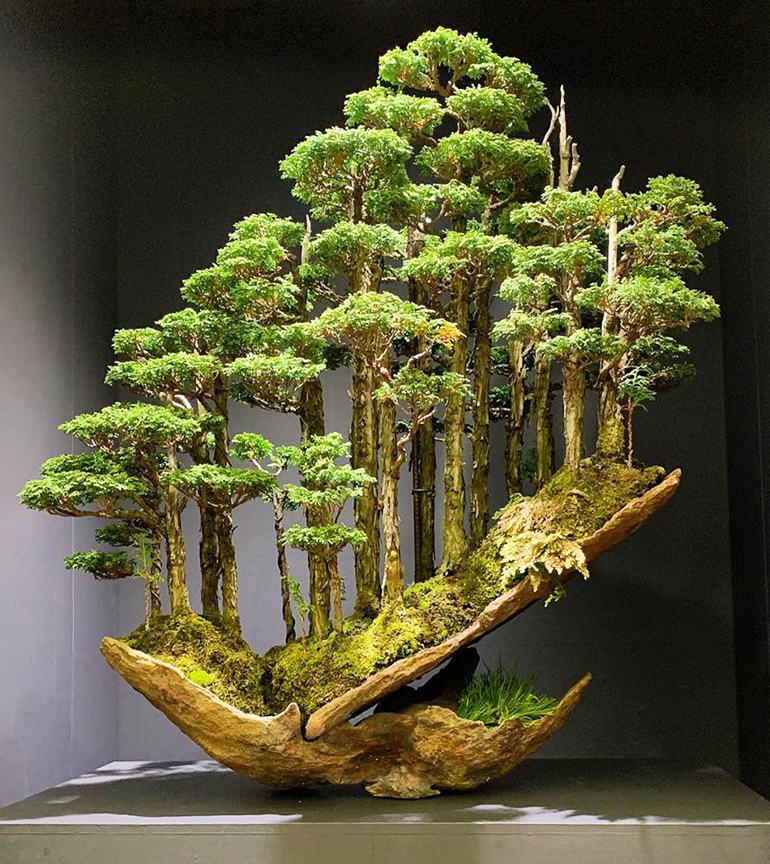
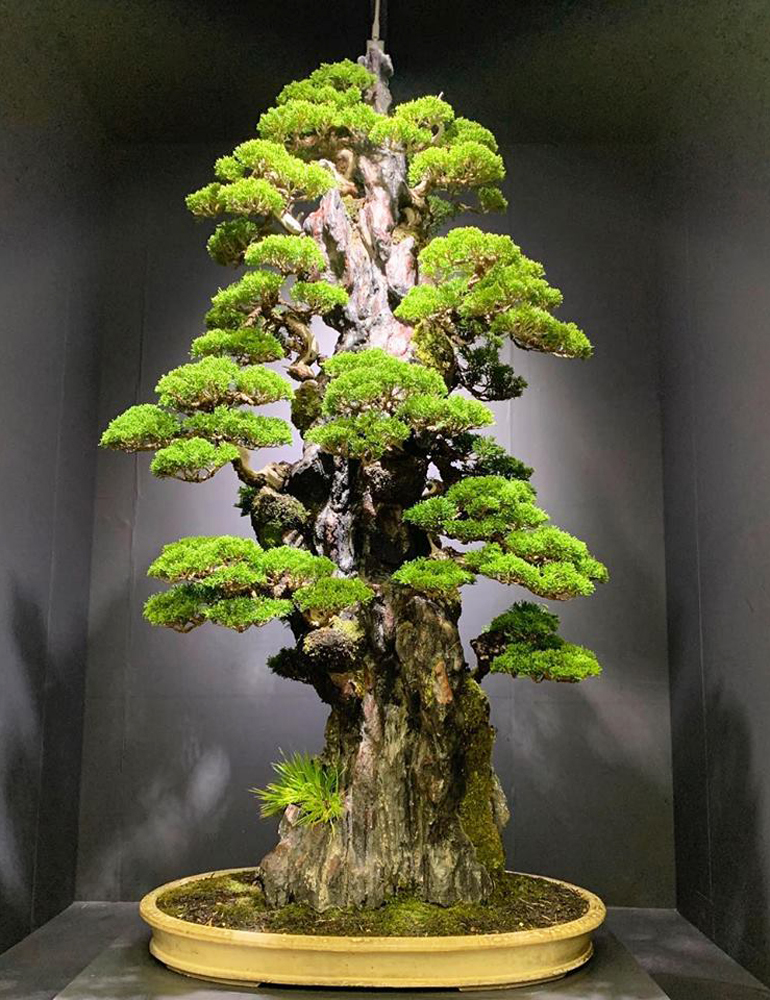
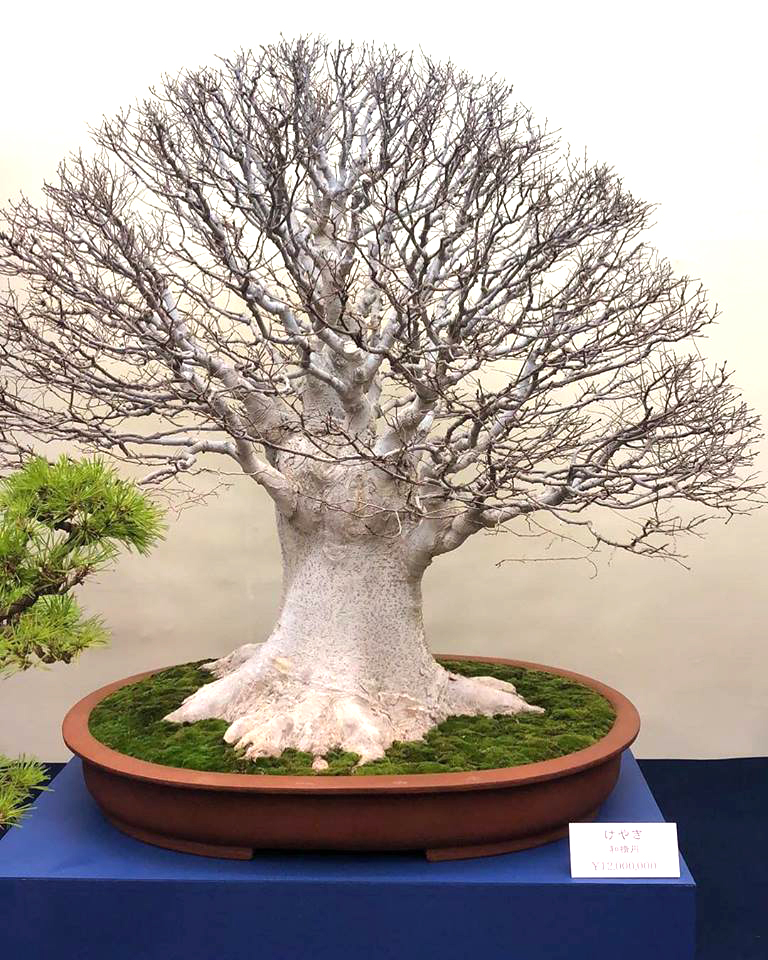
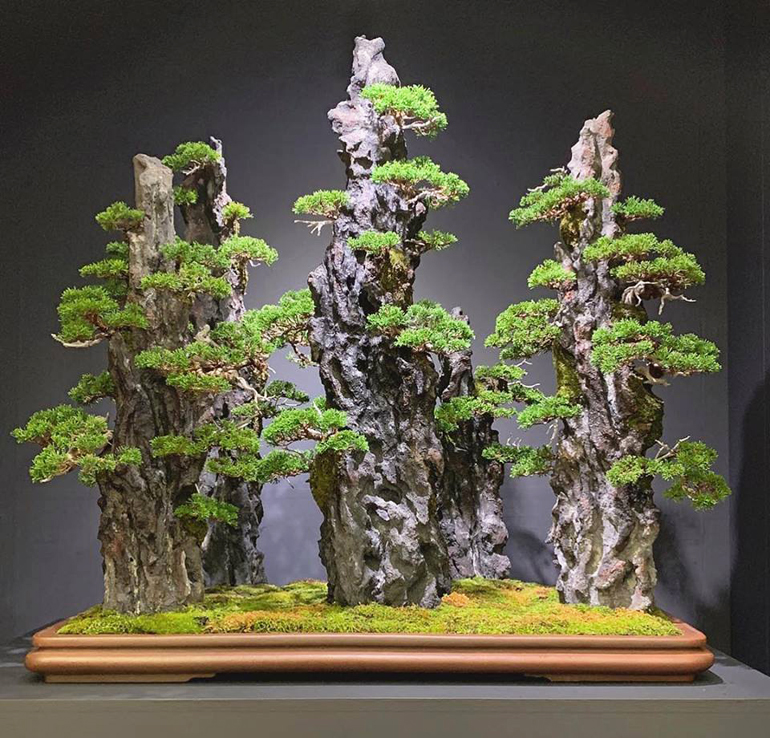
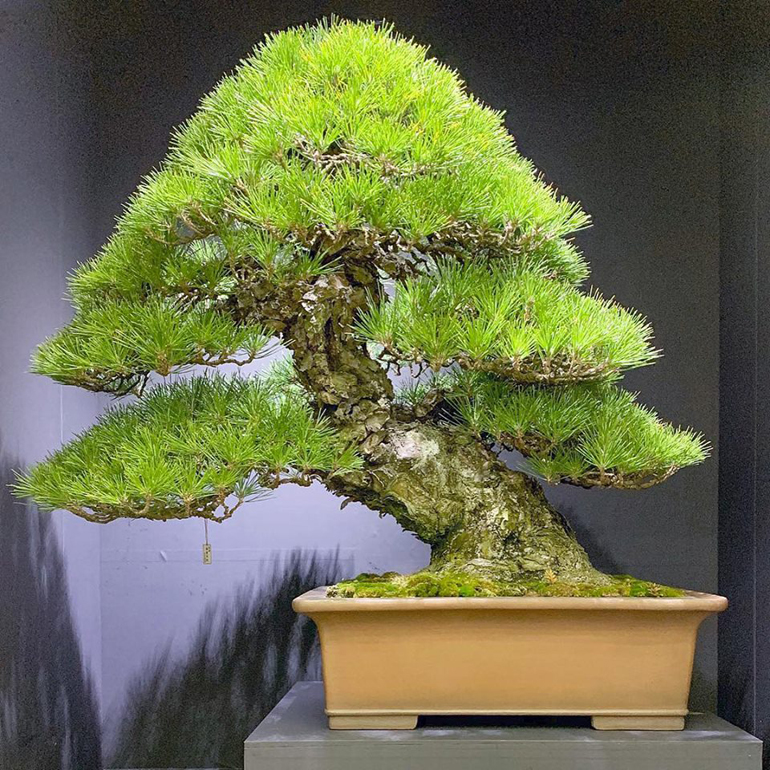
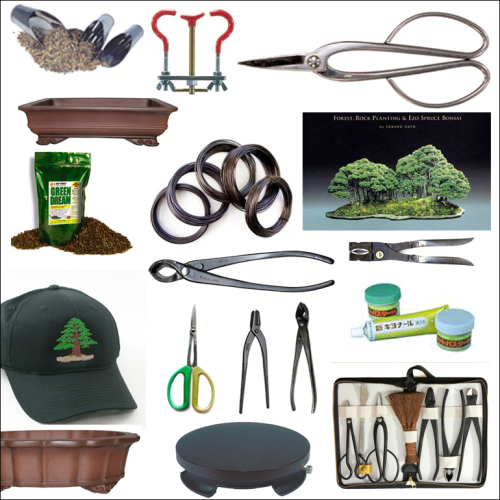
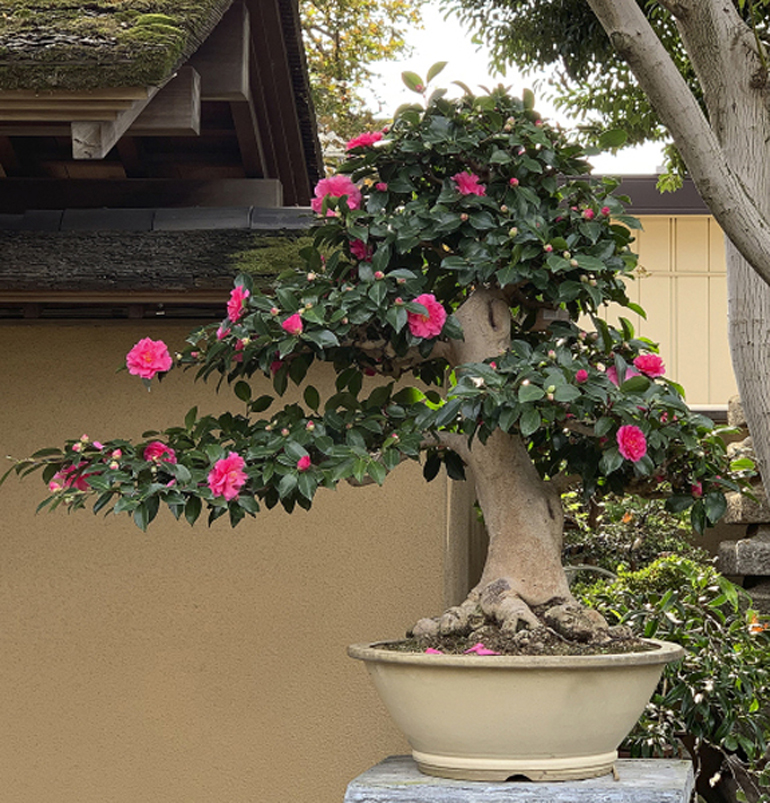
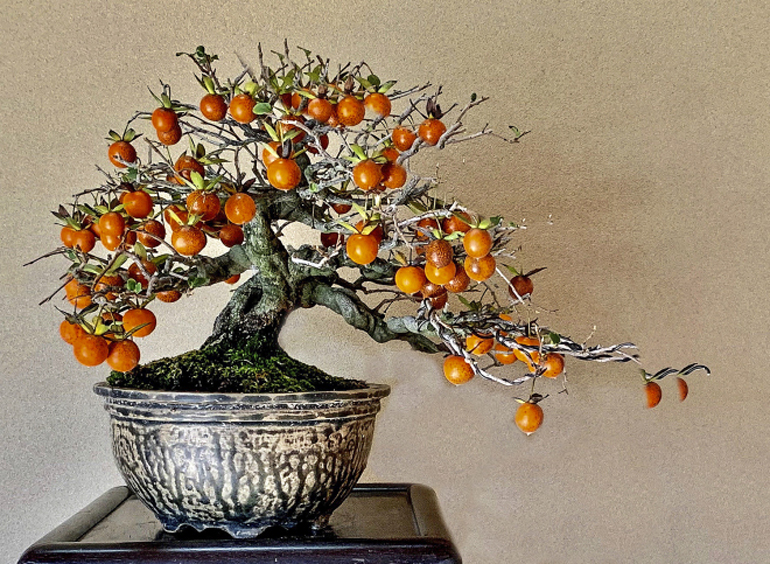 More color. This one looks like a Persimmon and the pot looks like it has a story to tell
More color. This one looks like a Persimmon and the pot looks like it has a story to tell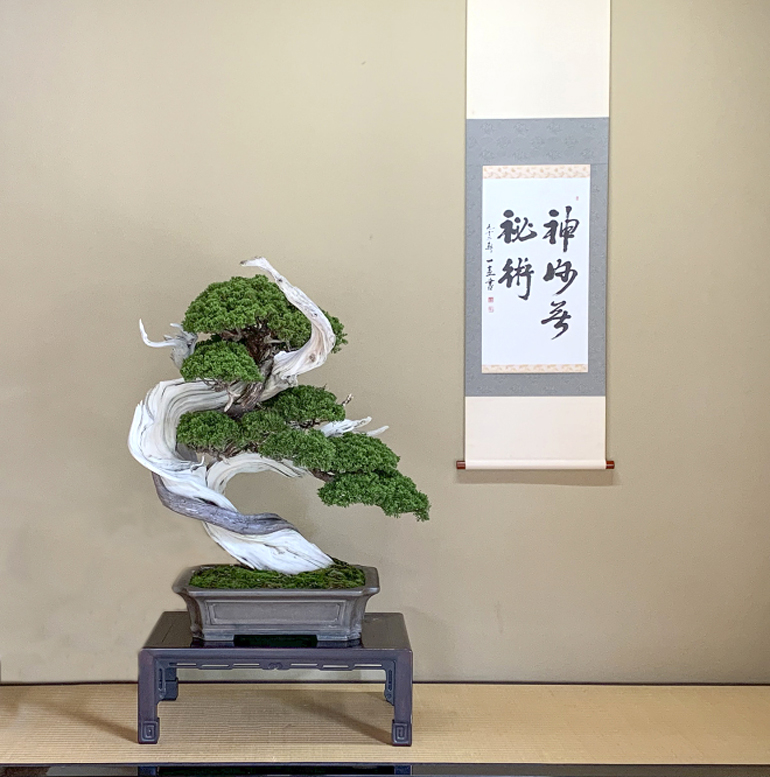
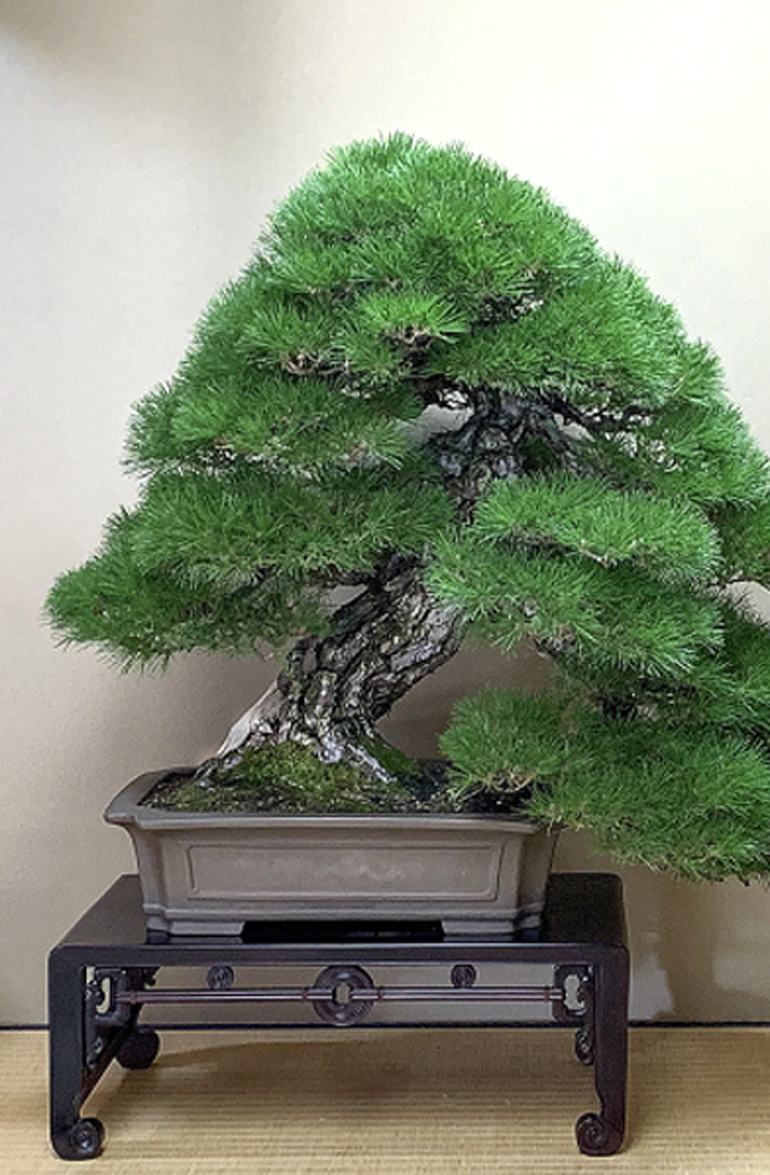


 Close up of multiple trunk Japanese white pine. It looks a lot like a raft style* planting. This and the other photos shown here were taken at the Kokufu Bonsai Exhibition. I cropped the original shot (just below) for a closer look
Close up of multiple trunk Japanese white pine. It looks a lot like a raft style* planting. This and the other photos shown here were taken at the Kokufu Bonsai Exhibition. I cropped the original shot (just below) for a closer look






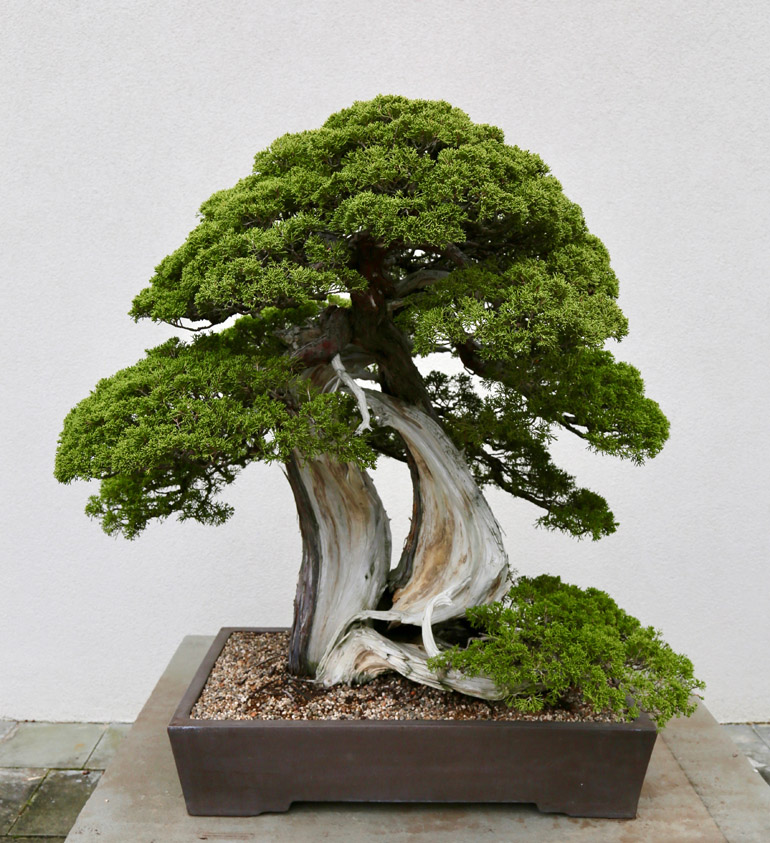


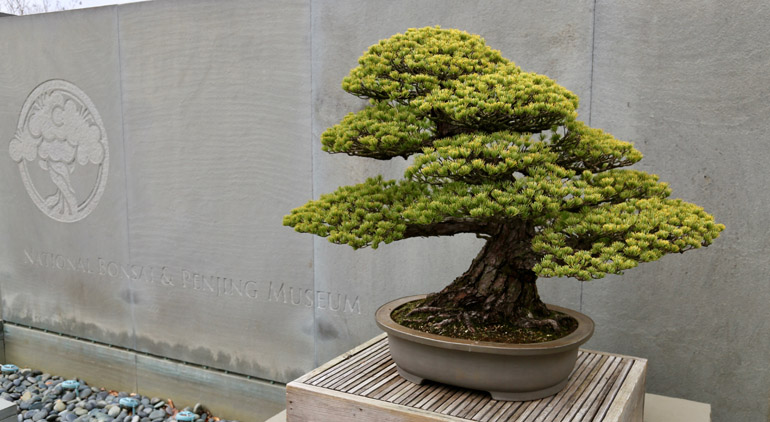

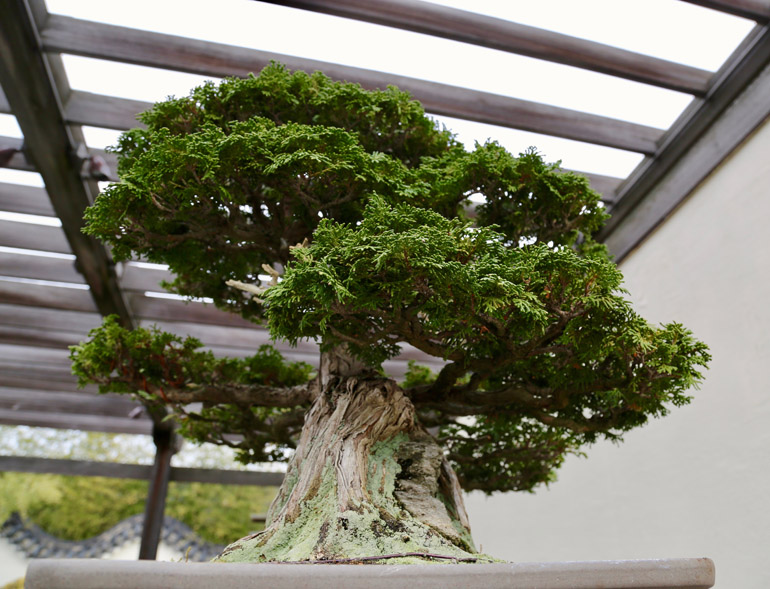
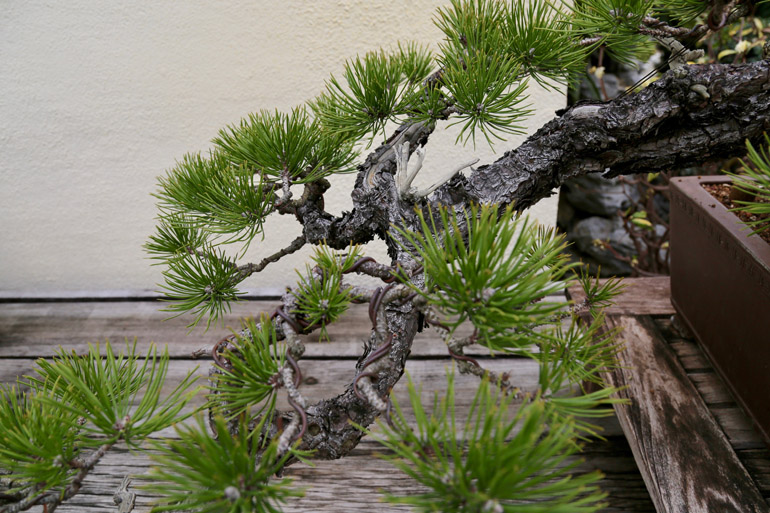
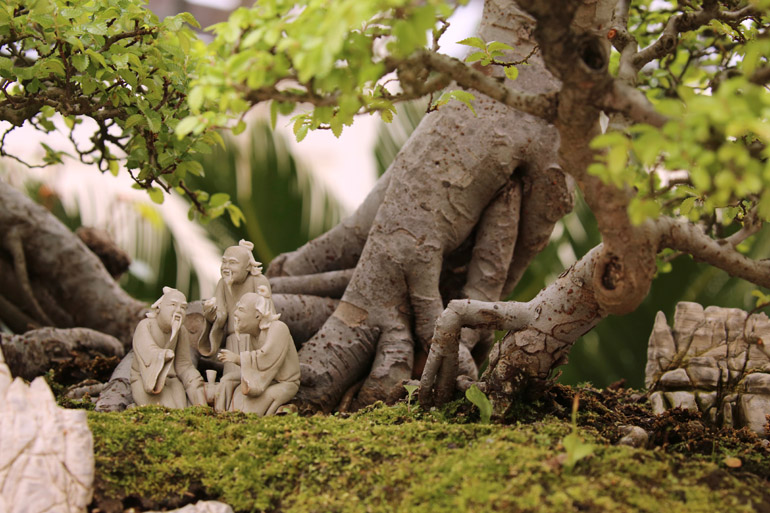

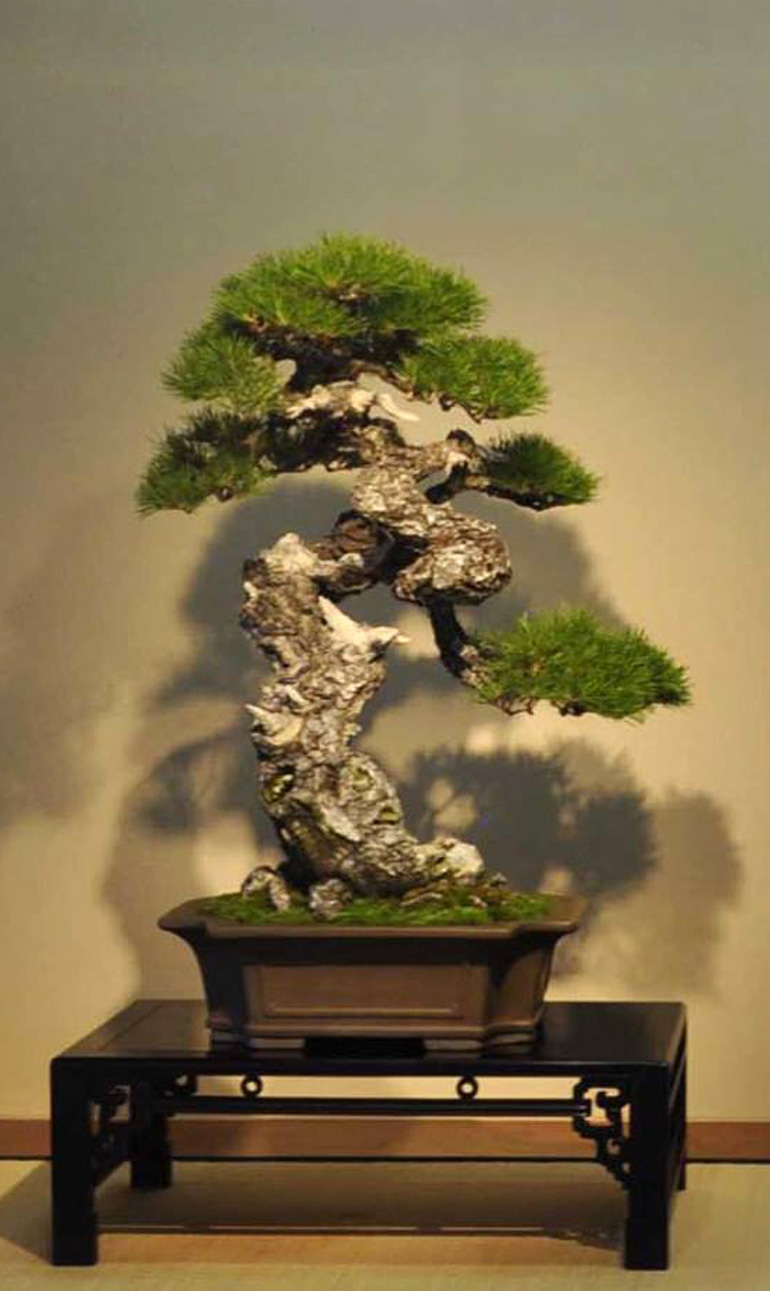
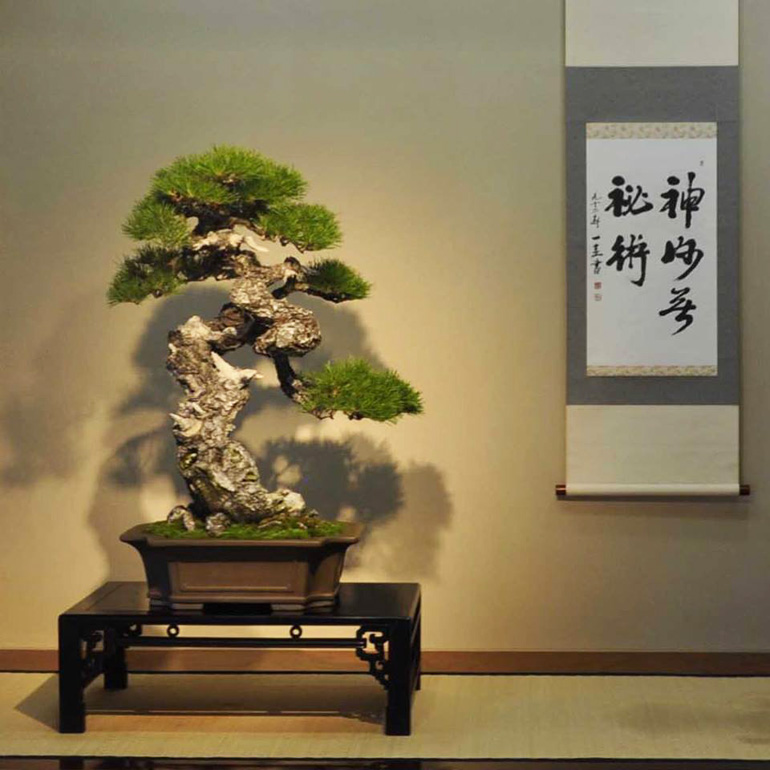
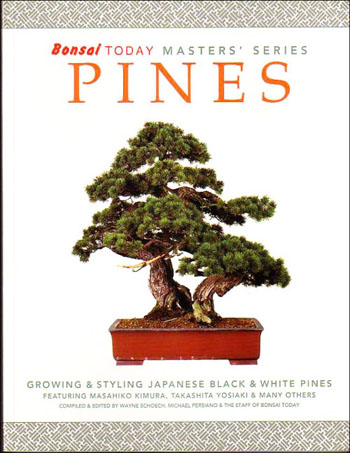
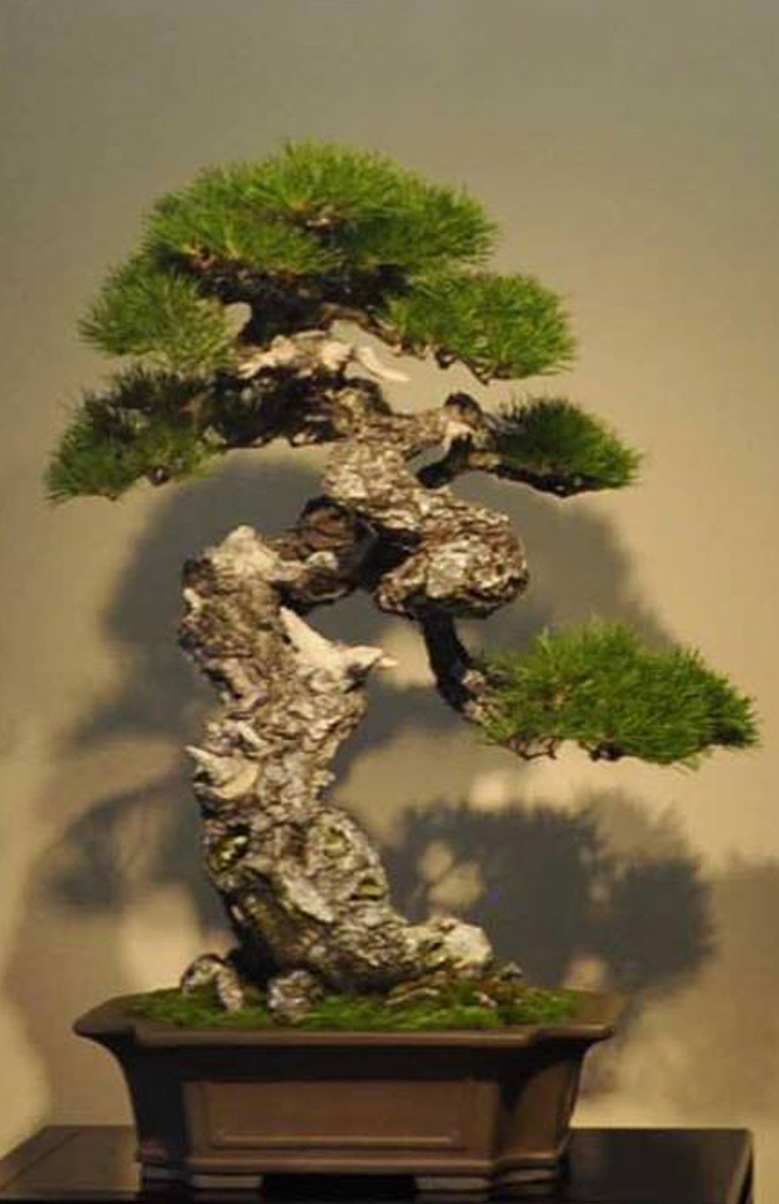 Cropped and blown up for a closer look at the gnarled old trunk
Cropped and blown up for a closer look at the gnarled old trunk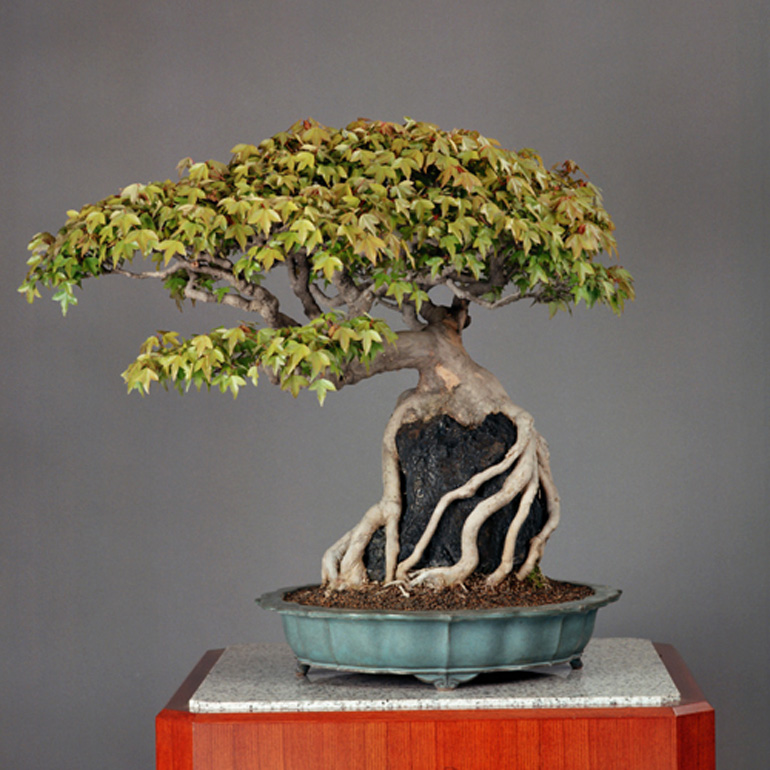
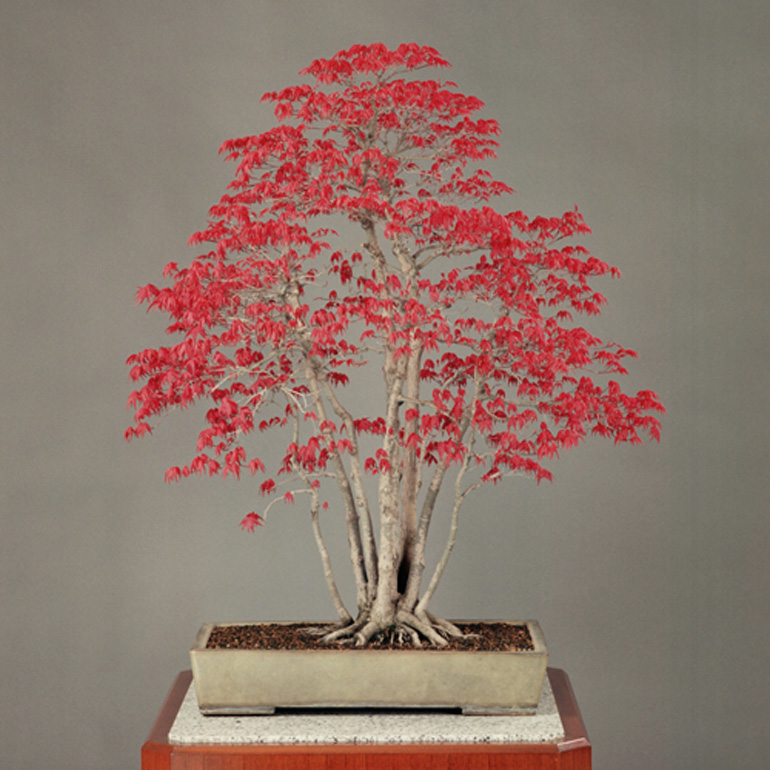 "Bright reddish leaves cover a 'De-Shojo momiji (Acer palmatum 'De-Shojo') in the budding season in April, as shown in a photo. Most of those leaves turn green in summer, but some remain red. They turn red again in autumn before the tree loses leaves toward winter. " From the
"Bright reddish leaves cover a 'De-Shojo momiji (Acer palmatum 'De-Shojo') in the budding season in April, as shown in a photo. Most of those leaves turn green in summer, but some remain red. They turn red again in autumn before the tree loses leaves toward winter. " From the 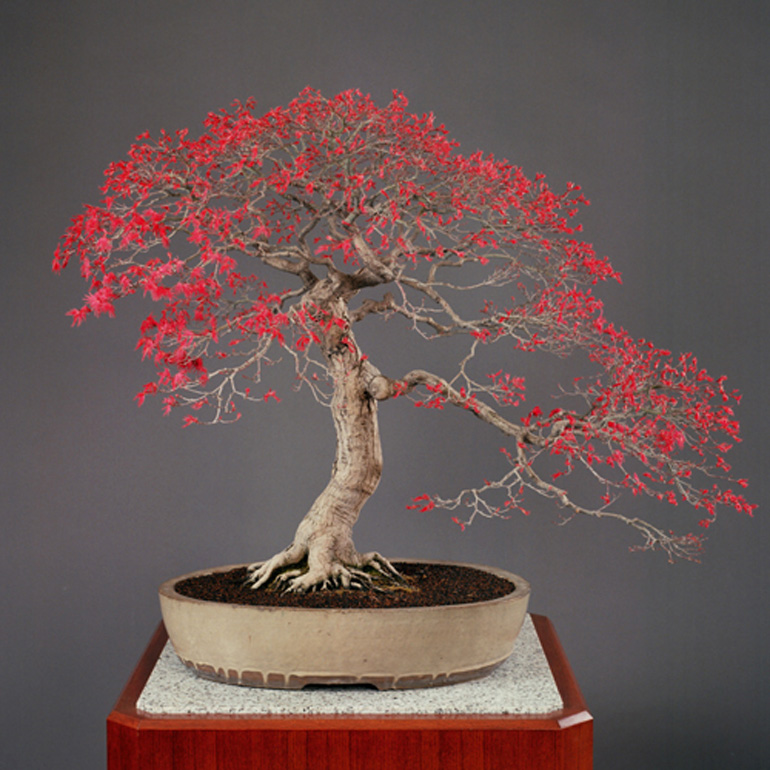
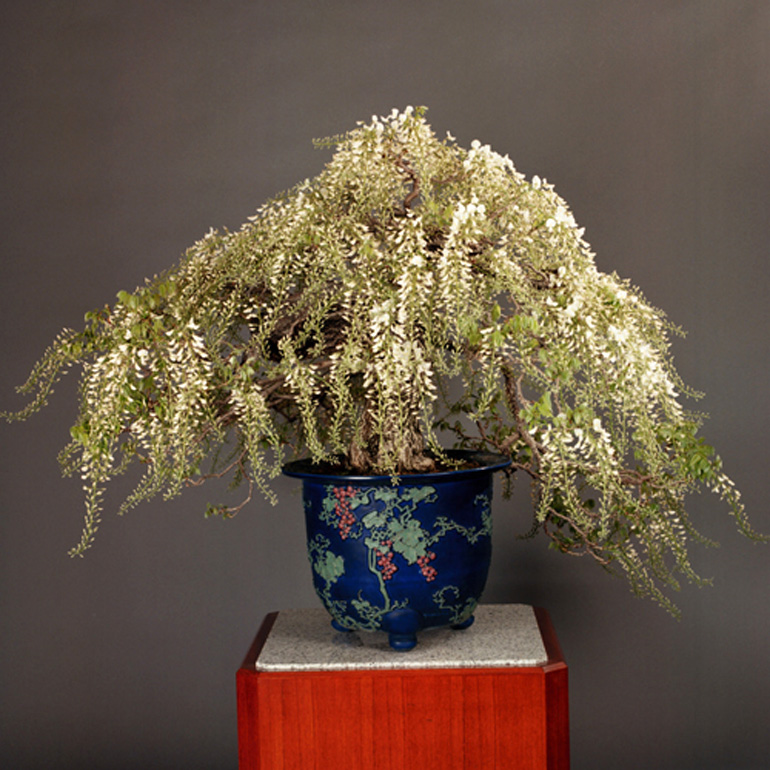
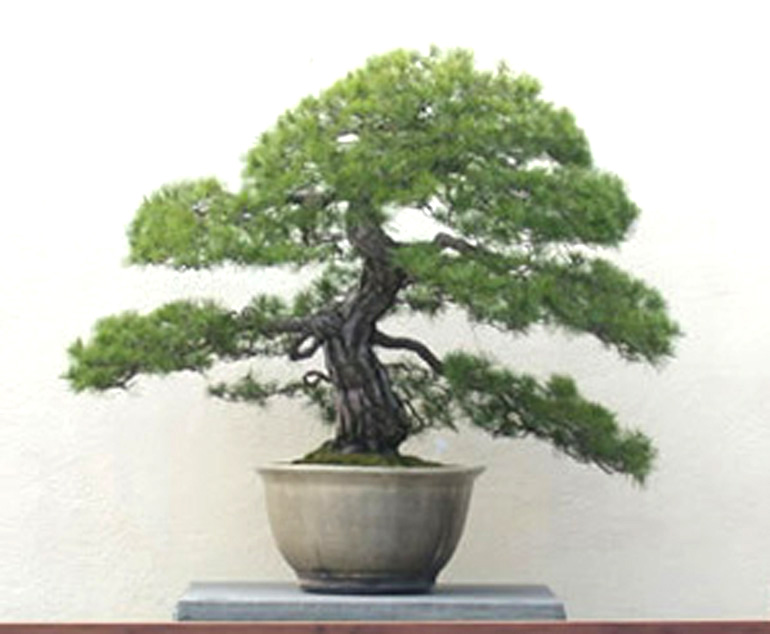
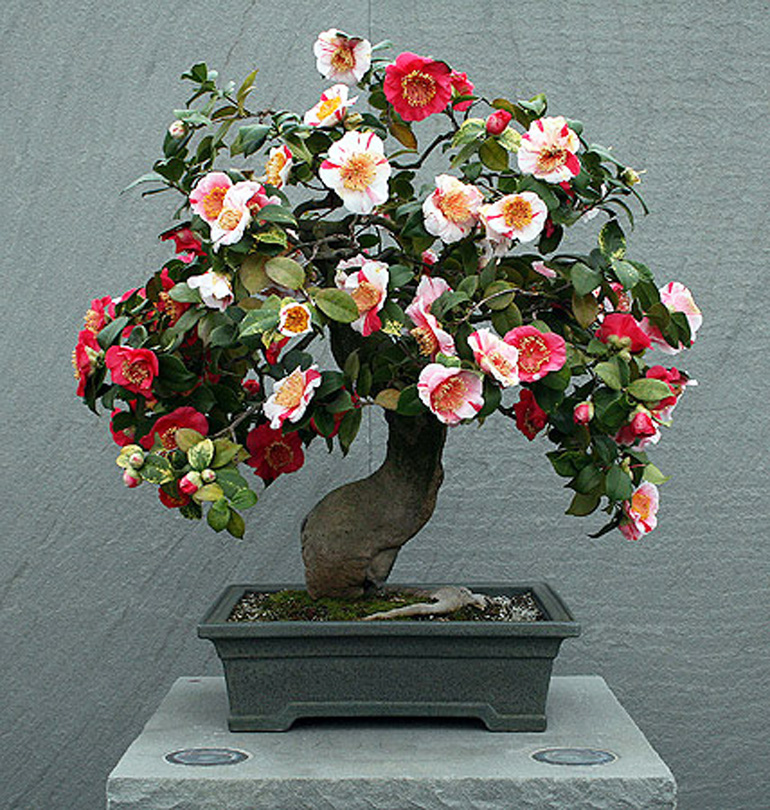
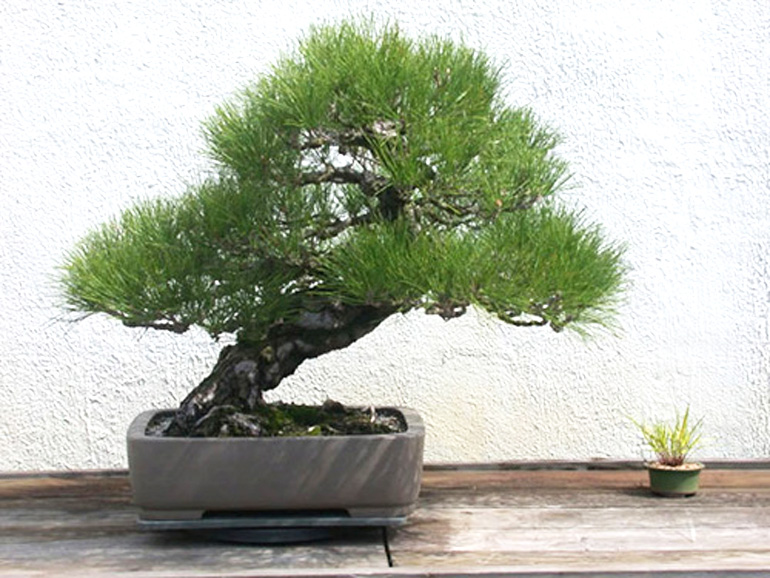 This old Japanese Black Pine was donated by Saichi Suzuki. It has been in training since 1895.
This old Japanese Black Pine was donated by Saichi Suzuki. It has been in training since 1895.
